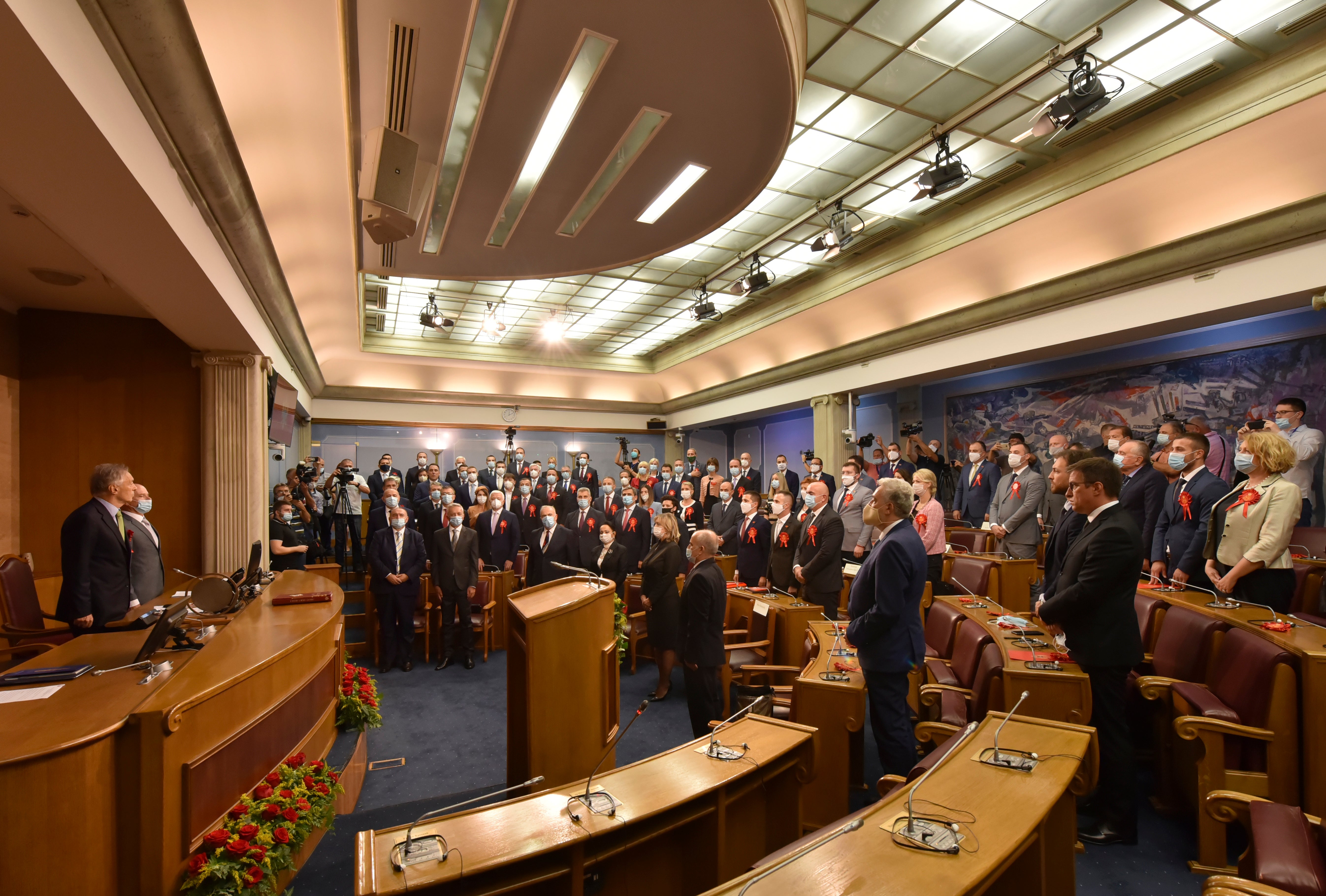Montenegro lawmakers return to forge new path after election
Montenegro's new parliament has convened for the first time since last month's election with lawmakers from formerly opposition groups set to form a new governing majority and oust from power a party that has ruled the Balkan country for some 30 years

Your support helps us to tell the story
From reproductive rights to climate change to Big Tech, The Independent is on the ground when the story is developing. Whether it's investigating the financials of Elon Musk's pro-Trump PAC or producing our latest documentary, 'The A Word', which shines a light on the American women fighting for reproductive rights, we know how important it is to parse out the facts from the messaging.
At such a critical moment in US history, we need reporters on the ground. Your donation allows us to keep sending journalists to speak to both sides of the story.
The Independent is trusted by Americans across the entire political spectrum. And unlike many other quality news outlets, we choose not to lock Americans out of our reporting and analysis with paywalls. We believe quality journalism should be available to everyone, paid for by those who can afford it.
Your support makes all the difference.Montenegro’s new parliament has convened for the first time since last month’s election, with lawmakers from formerly opposition groups set to form a new governing majority and oust from power a party that has ruled the Balkan country for some 30 years.
Although the pro-Western Democratic Party of Socialists won most votes in the Aug. 30 vote, a coalition of three other parties together garnered a majority of 41 seats in the 81-member assembly. The coalition leaders said Wednesday they have agreed on who will be the new parliament speaker and the future prime minister.
There have been fears that the new government could push Montenegro off its pro-Western course because it includes parties advocating closer ties with traditional allies Serbia and Russia. But leaders have pledged to strengthen ties with NATO and speed up the reforms needed to join the European Union.
Montenegro, a small Adriatic Sea nation of 620,000 people, has been a key Western ally in the Balkans while under the DPS party leadership. The party, however, has faced allegations of rampant corruption and links to organized crime.
The new coalition leaders have also pledged to change a disputed law on religious freedoms that sparked months of protests led by the influential Serbian Orthodox Church in Montenegro, and boosted the opposition ahead of the election.
If confirmed in parliament, the new government will take power during a surge in new coronavirus cases and after a failed tourism season which is expected to seriously hit the country's already weak economy.
The former DPS party led Montenegro to independence from Serbia in 2006 and into NATO in 2017, defying strong opposition from Russia.